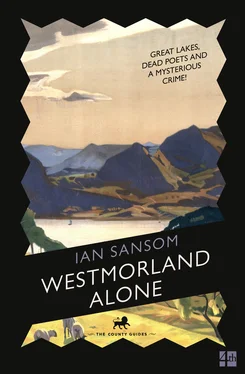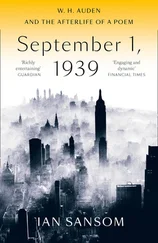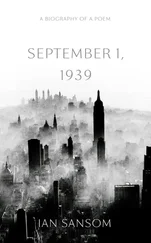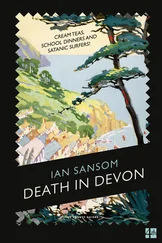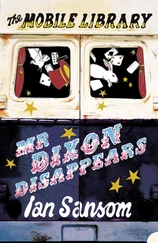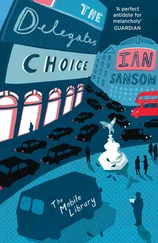My guess – though I can’t confirm it – is that it was probably Miriam who spotted the train in the distance. She wouldn’t have wanted us to beat her to Appleby. I can imagine her tossing back her head and stamping her elegant foot hard on the pedal. We must get there before him . Thank goodness she didn’t.
On the train I was showing the little girl how to work the camera. Her name was Lucy. She had a gap-toothed smile and freckles, little fat cheeks, and ringlets, and dark, dark eyes – a happy carefree face, the picture of innocence, a perfect Pears soap little girl. Her mother was dozing with the baby in her arms, the baby’s head resting gently on her breast. Lucy and I sang songs together and played games, and took it in turns to take photographs of the scenery. I took a photograph of her. She took a photograph of me. We whistled with the train’s whistle and knelt together on the seats as the world went rolling by, enjoying the freedom and the speed: the rocks, the stones, the trees, the farms, the sorry-looking Swaledale sheep.
Click.
Click.
Click.
It was one of those warm September days that seems like a bonus, that makes you believe that you still have another chance and that everything is not lost. We cheered as we reached Settle, laid out like a neat little pocket handkerchief under the pure blue sky. We passed a graveyard and then emerged into the vast Ribble Valley. We hollered our way through the long dark tunnel under Blea Moor and again as we reached the summit at Ais Gill, the vast cliffs opposite like something out of the American Wild West, the blazing heather and the dry-stone walls making everything appear as though it were wrapped and packaged and ready for presentation. Looking back, I wonder if that was perhaps the very last time I was truly happy: enjoying the golden stillness of the English countryside, mind and body relaxed and calm, moving inexorably forward and on and up towards the future and adventure. I had no thought then for London and what happened there. No thought for myself. I was moving on. I was in transit, a pilgrim journeying towards better things. Everything subsequently seems somehow darker, less good, lacking, broken and profane.
At a certain point, just before Appleby, the railway crosses the River Eden for the first time. I lifted Lucy up a little by the window, so that she could admire the river and the little viaduct with its piers and parapets and arches: twin wonders of nature and of human invention. A southerly wind blew the choking smoke away and we were granted a perfect view of Westmorland, ‘perhaps the most scenic county in England’, according to Morley. And so it is. I gave Lucy the camera and held her tight while she leaned out and took photographs.
The road swoops along and around from the railway approaching Appleby and in my mind’s eye I can see Miriam in the Lagonda, staring in dismay as we speed away before her. None of us of course had any idea that anything was wrong until things went wrong.
One moment we were upright, and then the next the carriage tipped and everything changed. I remember there being absolute silence before the screaming began.
In his short book about the history of the railways and their impact on the people and landscape of England, Morley’s Ringing Grooves of Change (1938), in a chapter entitled ‘Thundering Towards Our Fate’, he writes that ‘In our Steam Age, humans are becoming incapable of recognising the everyday. We value only the extraordinary. Trains themselves, for example, those astonishing creatures of such recent invention, exist now only in our consciousness and in the public imagination when they become untameable, when they become beasts, when they do damage or become derailed … It seems that in our time the railway accident,’ he concludes, ‘matters more to us than the railway itself. The crash, so much an admitted matter of course in railway travel, is becoming the condition of our culture.’
What follows is perhaps the most difficult and painful recollection from all my time with Morley. I will be as brief but as accurate as I can: the official records are of course available.
*The only piece of paper I ever saw framed was Morley’s school leaver’s report, an extraordinary scrap of a document, yellow with age, which hung above his desk and which placed him unceremoniously in division ‘D’ among his classmates, numbered at number 30 out of 30. ‘Morley’s schoolwork this year, as in every other year,’ the report reads in its entirety, ‘has alas been far from satisfactory. His test work has been uniformly poor and his prepared work often worse. In mathematics a typical piece of prepared work scored 2 marks out of a possible 50. In other subjects his work is equally bad. He has often been in trouble because he will not listen but will insist on doing things in his own way. I believe he has ideas of becoming a journalist or a writer. On his present showing in English this is quite ridiculous. He is a boy in possession of eccentric ideas who does not respond to the usual disciplines. He may possibly be suited to employment as an apprentice in some trade that requires neither rote learning nor regular hours.’ Fair comments.

CHAPTER 4
PANDAEMONIUM
IT WAS THE MOST VIOLENT COLLISION. There was a moment’s shudder and then a kind of cracking before the great spasm of movement and noise began. I fell forward and struck my head on the luggage rack. I was momentarily stunned and knocked unconscious.
When I came to I found we were all tilted together into a corner of the carriage – me, the mother and the baby. Our coach seemed to have tipped to the right, off the tracks, and become wedged against an embankment. What were once the sturdy walls of the carriage were now buckled and torn like the flimsiest material: the wood was splintered, the cloth of the carriage seats split, everything was broken. I remember I shook my head once, twice, three times: it was difficult to make sense of what had happened, the shock was so great. The first thing I recognised was that the mother and baby were both crying loudly – though thank goodness they appeared to be unharmed – and that the carriage was shuddering all around us, shaking and groaning as if it were wounded.
‘Are you OK?’ I said.
The woman continued crying. Her face was streaked with tears.
‘Are you OK?’ I repeated.
Again, she simply sobbed, the baby wailing with her.
‘We must remain calm,’ I said, as loudly and authoritatively as I could manage, above the sounds, trying to reassure both them and myself, willing them to be quiet.
‘Where’s Lucy?’ she said.
Where was Lucy?
I stood up, still rather disorientated and confused.
‘I don’t know—’ I began.
‘You have to get us out!’ said the woman, between sobs. ‘I have to find Lucy.’
‘OK,’ I said. I was still gathering my thoughts, trying to work out what to do.
‘GET US OUT!’ yelled the woman, suddenly frantic. ‘I have to find my daughter! You need to do something.’
I didn’t know what to do.
‘You need to do something!’ yelled the woman again. ‘Help us!’
The carriage continued to rock and sway all around us; clearly, we had to get out.
I looked around: the window was open to darkness and the tracks beneath us.
‘What’s under there?’ cried the woman. ‘Is Lucy under there? Lucy! Lucy!’ She did not wait for a response – she was hysterical. ‘Lucy! Lucy! Lucy!’
‘Look!’ I said. ‘You just have to let me check that everything is safe.’ I was worried that Lucy might be trapped beneath our carriage.
Читать дальше
